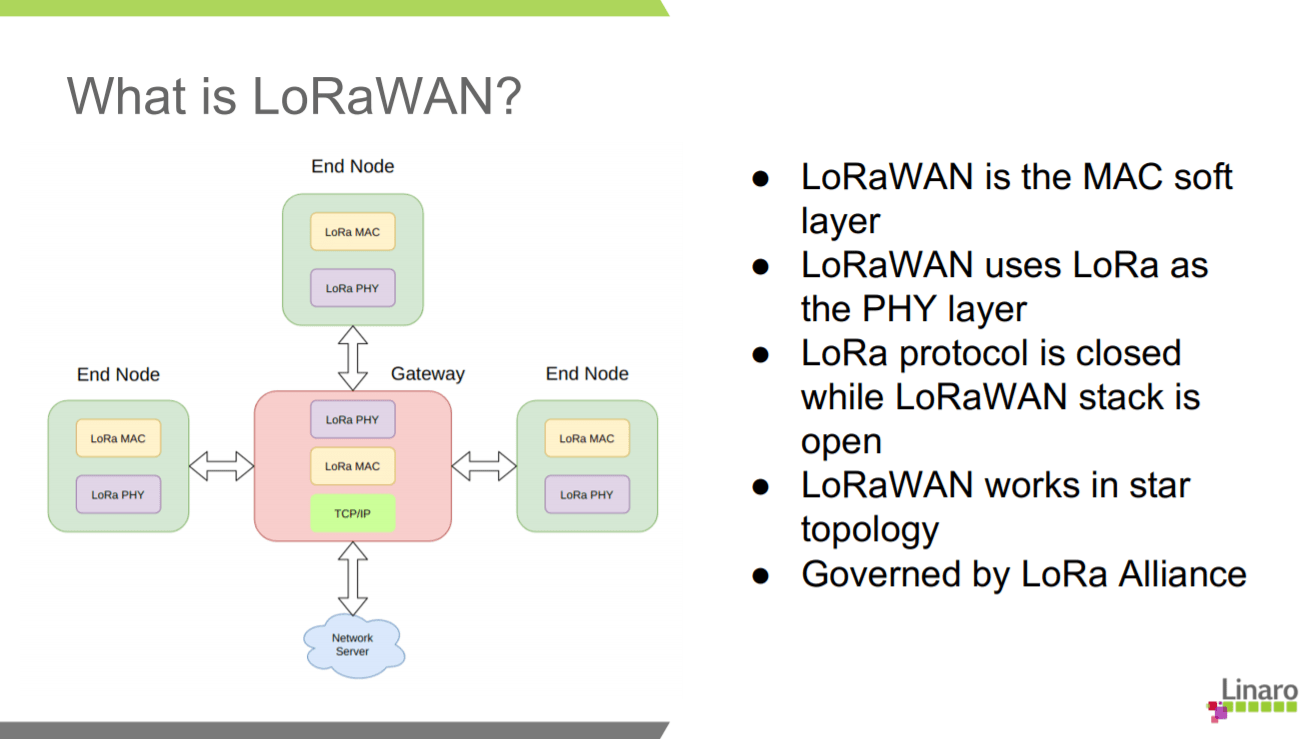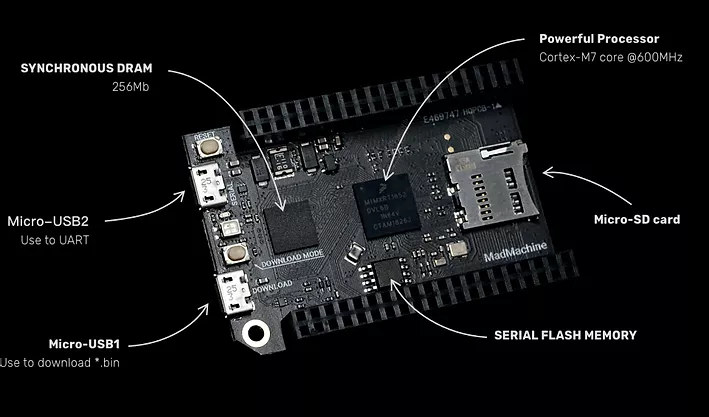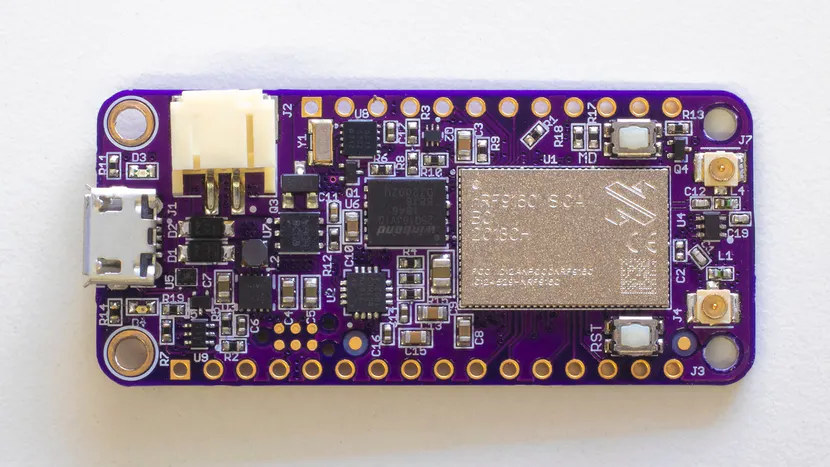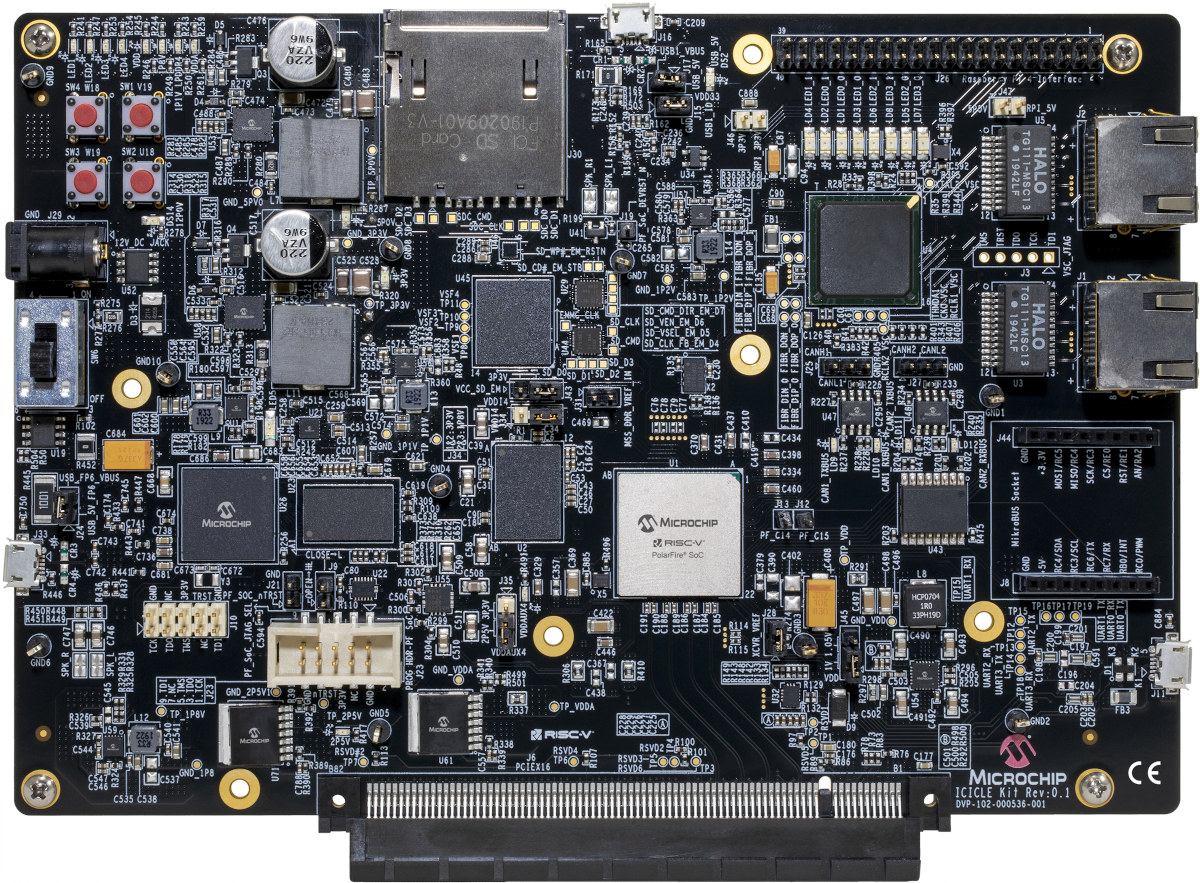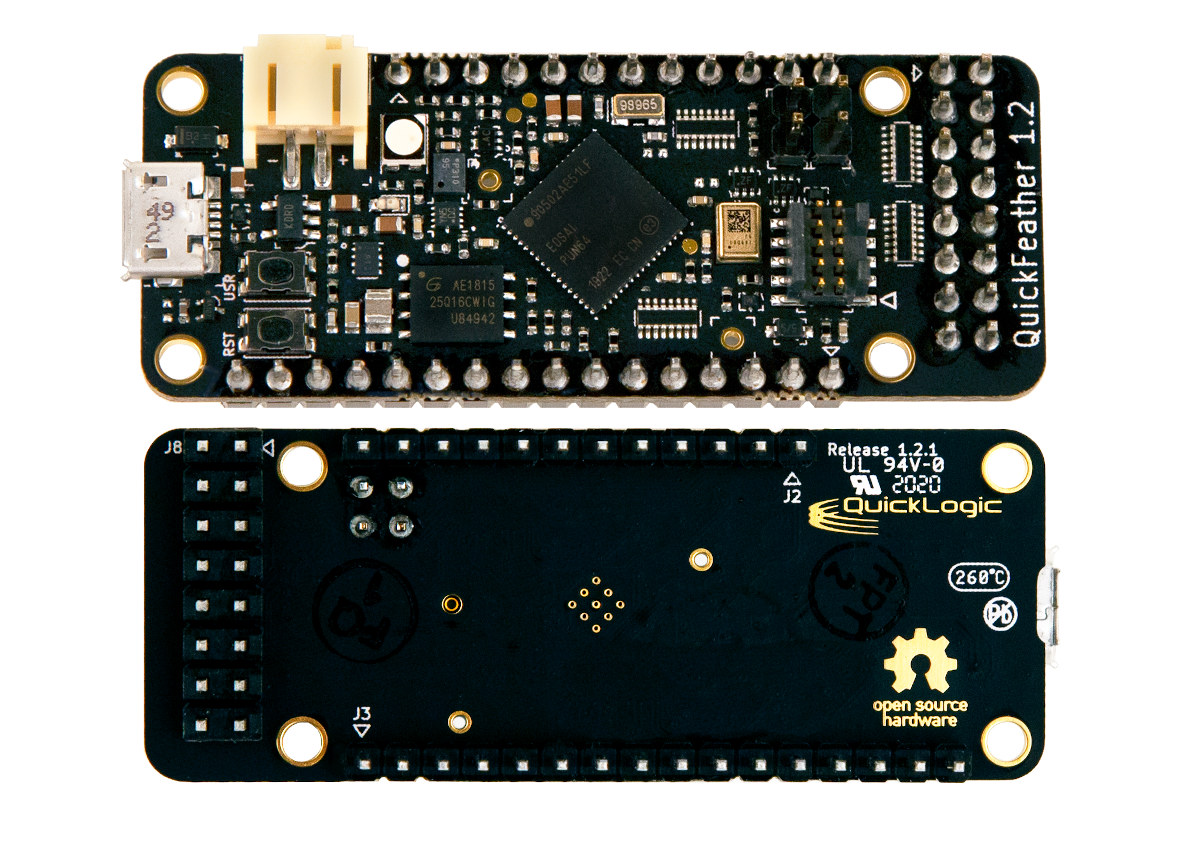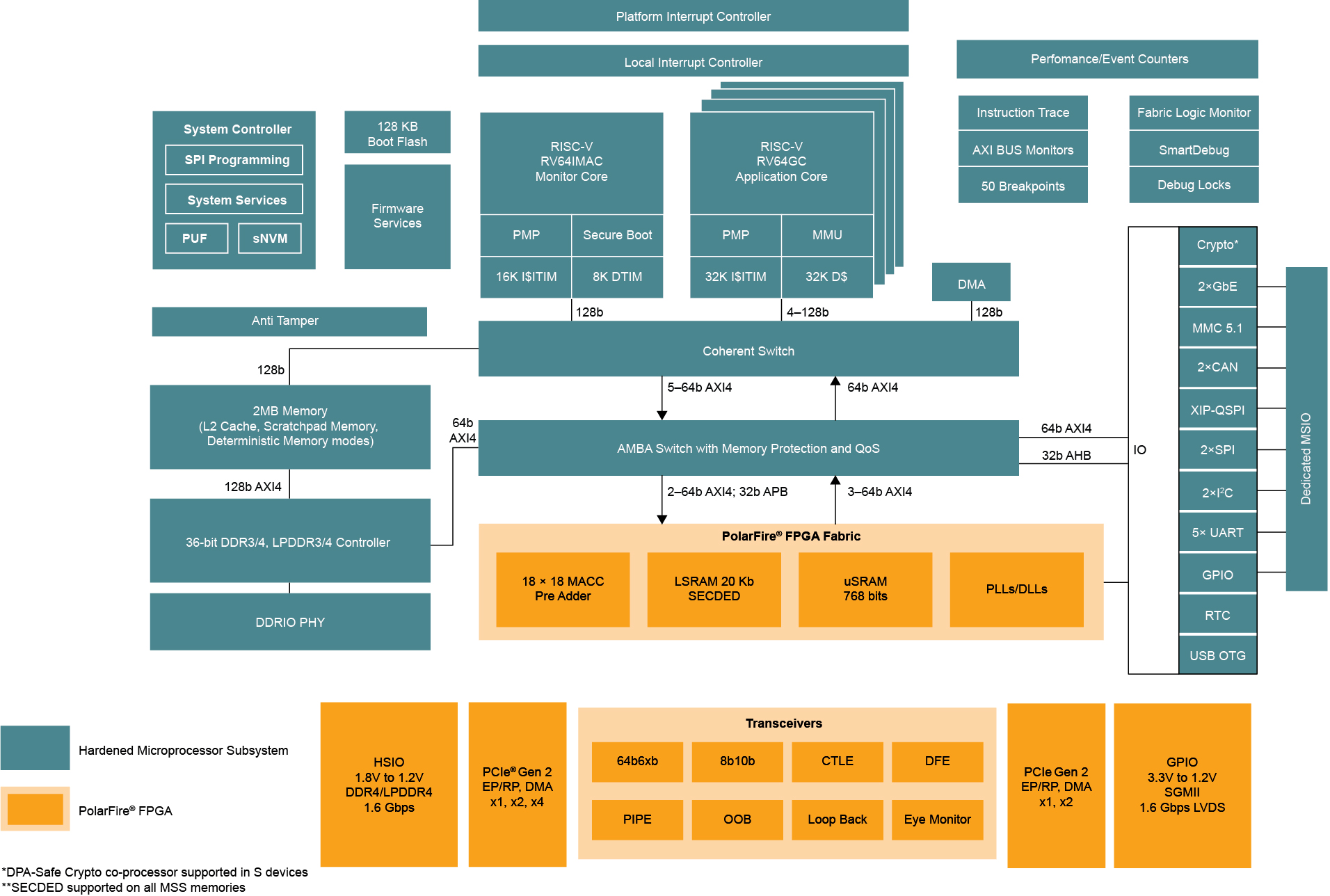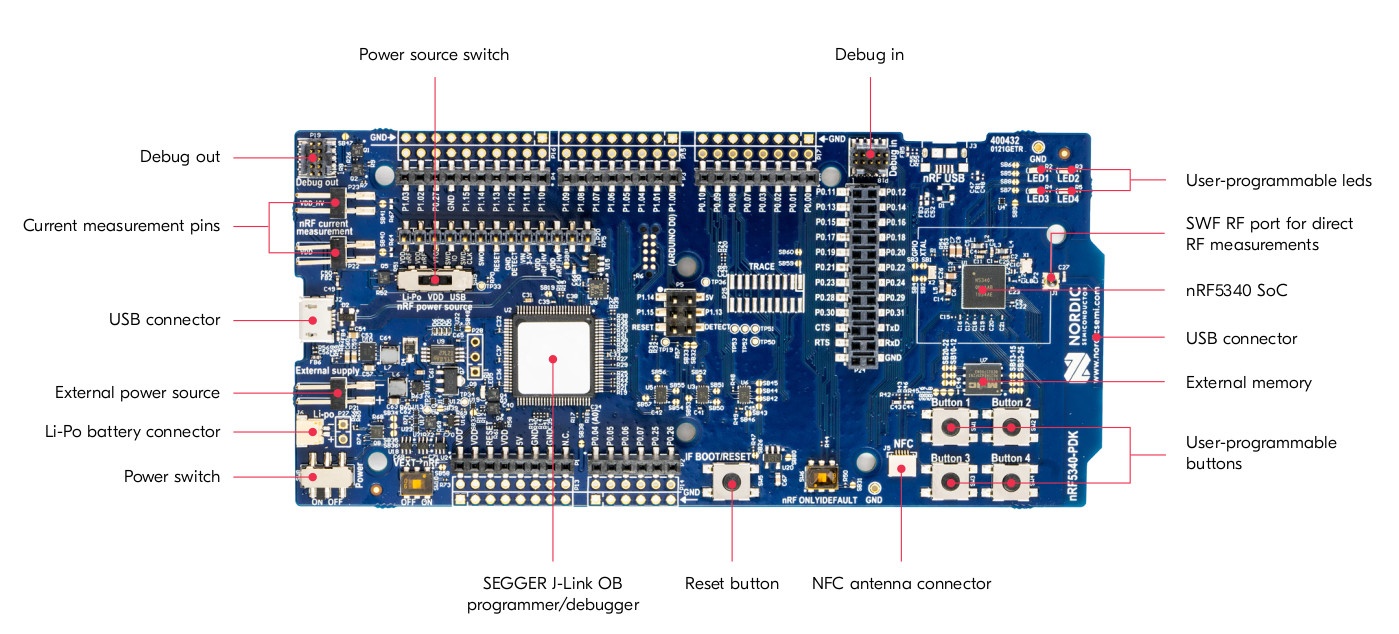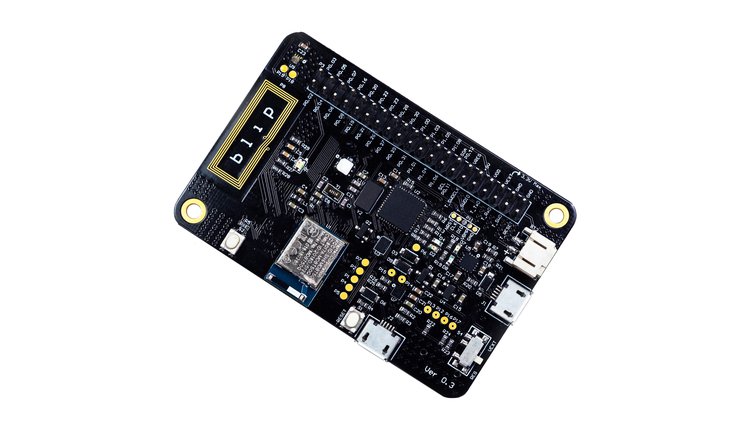The story of LoRa began in 2009 when Cycleo, a French company, invented LoRa. LoRa (Long Range) support for Zephyr OS goes back to December 2019. Since then, there has been a huge interest among the community to extend their support for it. More recently, LoRaWAN (low-power wide-area network) support was added to Zephyr OS. This will provide true networking support to Zephyr OS over LoRa. It operates in licensed free Sub Gigahertz frequencies (865 MHz-India, 868 MHz-Europe, etc…). It makes the perfect choice for low data rates and long-range applications. What is LoRaWAN? LoRaWAN is a MAC layer that sits on top of the LoRa. According to the OSI model, LoRaWAN is the MAC (media access control) layer while LoRa is the PHY (physical) layer. LoRa protocol is closed, meaning it is proprietary to Semtech, while LoRaWAN specifications are open to the public. The reference implementation is available at […]
SwiftIO Arm Cortex-M7 MCU Board Targets Apple Swift Programming Language
Swift programming language has been developed by Apple for iOS, iPadOS, macOS, watchOS, tvOS, and Linux. The programming language works with Apple’s Cocoa and Cocoa Touch frameworks, as well as existing Objective-C code written for Apple products. MadMachine has now created an Arm Cortex-M7 development board, named SwiftIO, specifically designed for Swift programming language through MadMachine IDE and SwiftIO framework. SwiftIO hardware specifications: SoC – NXP i.MX RT1052 Arm Cortex-M7 Crossover Processor @ 600MHz System Memory – 32 MB SRAM Storage – MicroSD card slot supporting standard and high capacity SD cards USB – 1x Micro USB connector for power, 1x Micro USB connector for serial communication Expansion – 2x 46 GPIO headers with 12x 12-bit analog to digital (ADC) converters, 4x UART, 2x CAN, 2x IIC, 2x SPI, 14x PWM Misc – On-board RGB LED, download and reset buttons Power Supply – 5V via Micro USB port Dimensions – […]
nRF9160 Feather LTE IoT and GPS Board Launched for $99
Nordic Semi nRF9160 is a system-in-package part of nRF91 series offering NB-IoT and eMTC (LTE-M) IoT connectivity, as well as assisted GPS. The package is now accessible on a board following Adafruit Feather form factor. Made by Circuit Dojo (Jared Wolff), nRF9160 Feather board supports both CAT M1 LTE and NB-IoT, can be powered by a USB power adapter or a LiPo battery and runs Zephyr OS via the nRF Connect SDK. nRF9160 Feather specifications: SiP – Nordic Semiconductor nRF9160-SICA LTE-M/NB-IoT/GPS SIP with Arm Cortex-M33 MCU, 1024 KB flash, 256 KB SRAM Storage – Onboard 4MB NOR flash (note: upgraded from initial 2MB) Cellular Connectivity – LTE Cat-M1 (eMTC) and LTE NB1/NB2 (NB-IoT) plus 4FF SIM card slot, and u.FL connector for an external antenna GNSS – Built-in assisted GPS support plus u.FL connector for an external antenna Expansion – Feather I/Os (12+16 through holes) with digital and analog I/Os, […]
PolarFire SoC Icicle 64-bit RISC-V and FPGA Development Board Runs Linux or FreeBSD (Crowdfunding)
We got some more details about PolarFire RISC-V FPGA SoC late last year, and we were promised a Linux capable 64-bit RISC-V & FPGA development board with PolarFire SoC Icicle kit in Q3 of 2020. We are already in July 2020. So where is the board? Oh, look! It’s right here on Crowd Supply where it is offered for $499, and shipping is expected to start in mid-September. PolarFire SoC Icicle specifications: SoC FPGA – PolarFire SoC MPFS250T-FCVG484EES penta–core RISC-V CPU subsystem (1xRV64IMAC, 4xRV64GC) with 254K LE non-volatile fabric, 784 18 × 18 math blocks, secure boot, 4x 12.7 Gbps SERDES, FCVG484 package (19 × 19 mm, 0.8 mm pitch) System Memory – 2GB LPDDR4 x32 Storage – 1 GBit QSPI Flash, 8GB eMMC Flash or SD card slot (multiplexed) Video Output – HDMI 2.0 (removed from final board) Connectivity – 2x Gigabit Ethernet, Wi-Fi, and Bluetooth USB – 1x […]
QuickFeather Board is Powered by QuickLogic EOS S3 Cortex-M4F MCU with embedded FPGA (Crowdfunding)
Yesterday, I wrote about what I felt what a pretty unique board: Evo M51 board following Adafruit Feather form factor, and equipped with an Atmel SAMD51 Cortex-M4F MCU and an Intel MAX 10 FPGA. But less than 24 hours later, I’ve come across another Adafruit Feather-sized Cortex-M4F board with FPGA fabric. But instead of using a two-chip solution, QuickLogic QuickFeather board leverages the company’s EOS S3 SoC with a low-power Cortex-M4F core and embedded FPGA fabric. QuickFeather board QuickFeather specifications: SoC – QuickLogic EOS S3 with Arm Cortex-M4F Microcontroller @ up to 80 MHz and 512 Kb SRAM, plus an embedded FPGA (eFPGA) with 2400 effective logic cells and 64Kb RAM Storage – 16Mbit SPI NOR flash USB – Micro USB port with data signals tied to eFPGA programmable logic Sensors – Accelerometer, pressure sensor, built-in PDM microphone Expansion I/Os – Breadboard-compatible 0.1″ (2.54 mm) pitch headers including 20 Feather-defined […]
RISC-V based PolarFire SoC FPGA and Devkit Coming in Q3 2020
Microsemi unveiled PolarFire FPGA + RISC-V SoC about one year ago, but at the time, development was done on a $3,000 platform with SiFive U54 powered HiFive Unleashed board combined with an FPGA add-on board from Microsemi. I’ve now been informed that Microchip has announced its Linux-capable PolarFire FPGA+RISC-V SoC would start shipping in Q3 2020 at the RISC-V summit and that a development kit will be sold for a few hundred dollars. PolarFire SoC FPGA PolarFire SoC FPGA key features and specifications: Mid-Range FPGA optimized for Low Power High-speed serial connectivity with built-in multi-gigabit/multi-protocol transceivers from 250 Mbps to 12.7 Gbps Up to 461k logic elements consisting of a 4-input Look-Up Table (LUT) with a fracture-able D-type flip-flop Up to 31.6 Mb of RAM Power optimized transceivers Up to 1420 18 × 18 multiply-accumulate blocks with hardened pre-adders Integrated dual PCIe for up to ×4 Gen 2 Endpoint […]
Nordic Semi nRF5340 Dual Arm Cortex-M33 SoC Supports Bluetooth 5.1/Mesh, NFC, Thread & Zigbee
After introducing nRF52833 WiSoC with Bluetooth 5.1 direction-finding support last month, Nordic Semiconductors has now launched another multi-protocol wireless SoC with nRF5340 featuring two Arm Cortex-M33 cores and supporting Bluetooth 5.1, Bluetooth Mesh, NFC, Thread & Zigbee. One of the Cortex-M33 is an application core incorporating 1 MB Flash and 512 KB RAM, as well as Arm CryptoCell-312, Arm TrustZone technology, and Secure Key Storage for the highest level of security, and the other Cortex-M33 core is used for networking functions. The company also announced nRF5340 PDK to get started with the new WiSoC. nRF5340 Dual-Core Multiprotocol SoC Key features and specifications: CPU Application core – Arm Cortex-M33 @ 128/64 MHz with 1 MB Flash + 512 KB RAM, 8 KB 2-way set associative cache; CoreMark: 510/255; CoreMark/mA: 65/76 Network core – Arm Cortex-M33 @ 64 MHz with 256 KB Flash + 64 KB RAM, 2 KB instruction cache; CoreMark: […]
Blip Nordic nRF52840 Dev Board Includes STM32 Black Magic Probe Programmer & Debugger (Crowdfunding)
The Latest Electronut Labs Nordic nRF52840 Based Dev Board Electronut Labs has started its Crowd Supply campaign for Blip, a Nordic nRF52840 based development board. With many onboard sensors and systems, the boards are aimed at prototyping and projects in a wide variety of BLE and 802.15.4, wireless application scenarios. It has a programmer and debugger built-in. Past Articles Electronut Labs has a series of Nordic Semiconductor SoC projects previously reported on including Papyr, a Bluetooth E-Paper Display and Bluey, a BLE Development board using the Nordic nRF52832, and CNXSoft also published an article comparing several of the Nordic SoC available in development boards for Bluetooth 5 (BLE5). The Features the Stand Out Blip has a Black magic Probe compatible programmer and debugger built-in, along with a temperature/humidity sensor, ambient light intensity sensor, and a three-axis accelerometer. The board is designed to prototype very low power devices and an ability […]


